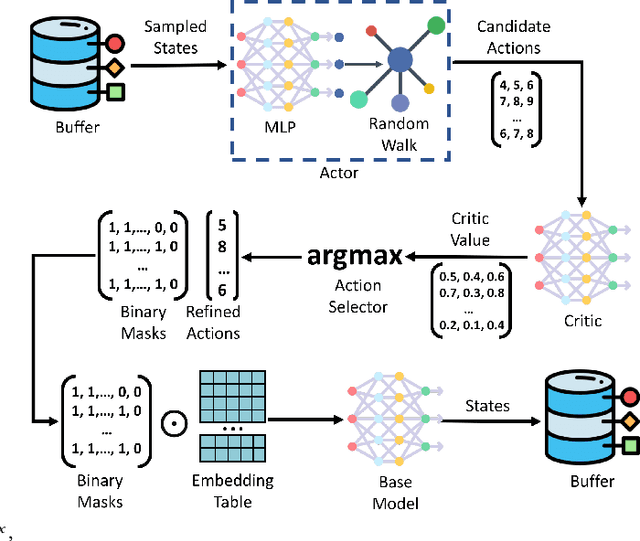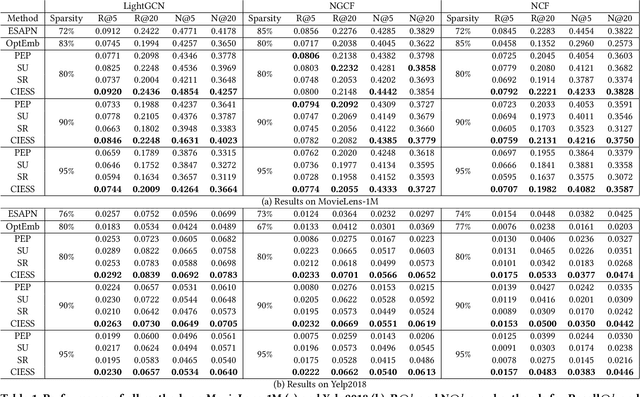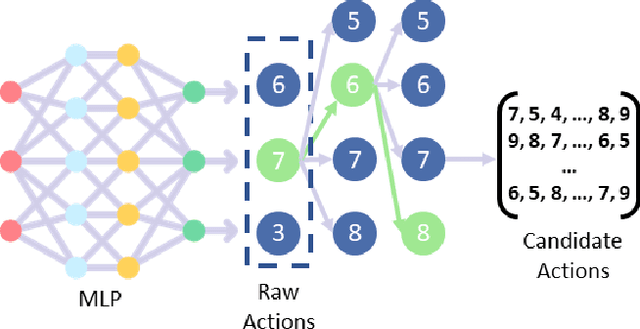Continuous Input Embedding Size Search For Recommender Systems
Paper and Code
Apr 25, 2023



Latent factor models are the most popular backbones for today's recommender systems owing to their prominent performance. Latent factor models represent users and items as real-valued embedding vectors for pairwise similarity computation, and all embeddings are traditionally restricted to a uniform size that is relatively large (e.g., 256-dimensional). With the exponentially expanding user base and item catalog in contemporary e-commerce, this design is admittedly becoming memory-inefficient. To facilitate lightweight recommendation, reinforcement learning (RL) has recently opened up opportunities for identifying varying embedding sizes for different users/items. However, challenged by search efficiency and learning an optimal RL policy, existing RL-based methods are restricted to highly discrete, predefined embedding size choices. This leads to a largely overlooked potential of introducing finer granularity into embedding sizes to obtain better recommendation effectiveness under a given memory budget. In this paper, we propose continuous input embedding size search (CIESS), a novel RL-based method that operates on a continuous search space with arbitrary embedding sizes to choose from. In CIESS, we further present an innovative random walk-based exploration strategy to allow the RL policy to efficiently explore more candidate embedding sizes and converge to a better decision. CIESS is also model-agnostic and hence generalizable to a variety of latent factor RSs, whilst experiments on two real-world datasets have shown state-of-the-art performance of CIESS under different memory budgets when paired with three popular recommendation models.
 Add to Chrome
Add to Chrome Add to Firefox
Add to Firefox Add to Edge
Add to Edge